Retos en la implementación de exámenes de lenguas en línea con Moodle
Main Article Content
Abstract
The application of online exams provides several benefits compared to traditional examinations, especially cost reduction, flexibility in terms of locations and schedules, and the optimization of the entire process, where the inclusion of more dynamic and interactive questions is facilitated, and the delivery of results becomes more efficient. However, in some cases it is not enough to use the resources and activities provided by the content management system that was chosen to support these exams; instead, it is necessary to generate customized solutions to meet particular needs. This was the case of the admission exams for different projects at the Escuela Nacional de Lenguas, Lingüística y Traducción, where the reading and listening comprehension sections required adjustments either in the configuration or in the Moodle programming. The design of the technological solutions used a software engineering-based methodology to define the requirements and to propose solutions within the available institutional resources, as well as delivering the analysis of the advantages and disadvantages of using a commercial solution. Specifically, the programming that was required to control the number of audio playbacks in the listening comprehension sections was developed within an agile methodology that promoted a continuous improvement cycle with adjustments based on the areas of opportunity that were detected. The reported results show how adaptable Moodle is for specific tasks, while they provide lessons learned and outline new paths to be explored in future work. At the same time, the results suggest recommendations and reflections that may be useful for solving similar problems in other contexts.
Downloads
Article Details

This work is licensed under a Creative Commons Attribution-NonCommercial-NoDerivatives 4.0 International License.
Este trabajo tiene la licencia CC BY-NC-ND 4.0
References
Ally, S. (2022). Review of Online Examination Security for the Moodle Learning Management System. International Journal of Education and Development using Information and Communication Technology, 18(1), 107-124.
Beck, K., Beedle, M., Bennekum, A., Cockburn, A., Cunningham, W., Grenning, J., Highsmith, J., Hunt, A., Jeffries, R., Kern, J., Marick, B., Martin, R., Mellor, S., Schwaber, K., Sutherland y J., Thomas, D. (2001). Principios del Manifiesto Ágil. Recuperado de: https://agilemanifesto.org/iso/es/principles.html
Data manipulation API|Moodle Developer Resources. (2024, 16 diciembre). https://moodledev.io/docs/4.4/apis/core/dml
De Mendizábal, M., y Valenzuela, R. (2015). Plataformas libres para la educación mediada por las TIC. S y G Editores.
García-Murillo, G., Novoa-Hernández, P., y Rodríguez, R. S. (2020). Technological satisfaction about Moodle in higher education—A meta-analysis. IEEE Revista Iberoamericana de Tecnologías del Aprendizaje, 15(4), 281-290. https://doi.org/10.1109/RITA.2020.3033201 DOI: https://doi.org/10.1109/RITA.2020.3033201
Hillier, M., Grant, S., y Coleman, M. (2018). Towards authentic e-Exams at scale: robust networked Moodle. In M. Campbell, J. Willems, C. Adachi, D. Blake, I. Doherty, S. Krishnan, S. Macfarlane, L. Ngo, M. O'Donnell, S. Palmer, L. Riddell, I. Story, H. Suri, y J. Tai (Eds.), Open oceans: learning without borders: proceedings ASCILITE 2018 Geelong (pp. 131-141). ASCILITE. https://doi.org/10.14742/apubs.2018.1919 DOI: https://doi.org/10.14742/apubs.2018.1919
IBM. (2015). ¿Qué es Ajax?. https://www.ibm.com/docs/es/rational-soft-arch/9.7.0?topic=page-asynchronous-javascript-xml-ajax-overview
Koneru, İ. (2017). Exploring Moodle Functionality for Managing Open Distance Learning E-Assessments. Turkish Online Journal of Distance Education, 18(4), 129-141. https://doi.org/10.17718/tojde.340402 DOI: https://doi.org/10.17718/tojde.340402
Moodle. (2024a). Embedded Answers (Cloze) question type - MoodleDocs. https://docs.moodle.org/405/en/Embedded_Answers_(Cloze)_question_type
Moodle. (2024b). Git for Administrators - MoodleDocs. https://docs.moodle.org/405/en/Git_for_Administrators
Moodle. (2024c). Performance recommendations - MoodleDocs. https://docs.moodle.org/404/en/Performance_recommendations
Moodle. (2024d). Security - MoodleDocs. https://docs.moodle.org/404/en/Security
Poodll. (11 de agosto de 2022). Strict Audio Player for Moodle. [Archivo de video]. Youtube. https://youtu.be/4SVBSAlxBZY
Ponce-López, J.L.(Coord.). (2019). Estado actual de las tecnologías de la información y la comunicación en las instituciones de educación superior en México: Estudio 2019. ANUIES.
Universidad Nacional Autónoma de México. (2021, 16 noviembre). Lineamientos generales para las actividades universitarias en el marco de la pandemia de COVID-19. UNAM Gaceta. https://www.cseguimientocovid19.unam.mx/Docs/211116-Lineamientos-generales-para-las-actividades-universitarias-en-el-marco-de-la-pandemia-de-covid-19-161121.pdf



